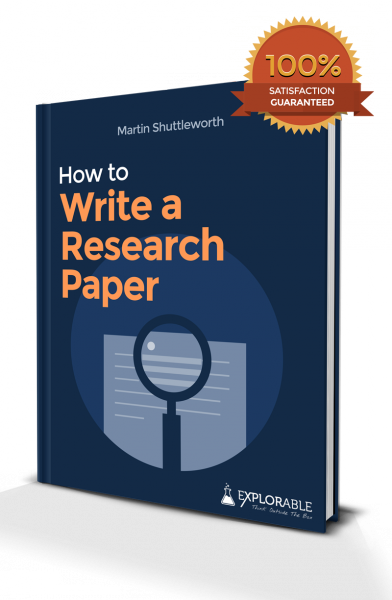
- Home >
- Writing an Abstract
Writing an Abstract
For longer research papers, dissertations and theses, writing an abstract is an essential part of the process, as it summarizes the entire research paper.
This article is a part of the guide:
Browse Full Outline
The abstract allows a researcher to quickly evaluate the content of your paper, and judge whether it’s relevant to their research.
As a result, an abstract needs to convey a complete synopsis of the paper, but within a tight word limit. This restriction is where the difficulties lie.
You will be given a maximum word count for an abstract, such as 200 words, and it is essential that you remain within this limit.
Nowadays, scientific papers are generally placed onto a database, with strict limits on the number of words, meaning an overlong abstract risks the entire paper becoming rejected.
Writing an abstract includes briefly introducing the general topic of the work and then explaining the exact research question, including the aims. It should then include a brief description of the methodology, the results and the discussion.
You should try to stick to the exact research question answered, and avoid including your own personal interpretations - if people believe that your paper is relevant they will come across those in due course.
The same applies with the methodology - you could, for example, state that you used chromatography as part of the experiment. If somebody decides that your paper is relevant, they will find out exactly what type of chromatography you used in the method section.
Fitting all of this into a very restrictive word count can be a daunting task.
Start writing an abstract without worrying too much about the word limit, making sure that you include all the information that you believe to be relevant. Leave it for a day or two and then you can embark on an edit.
With fresh eyes, you’ll see that some of the information is irrelevant and can be cut. You can take out some of the descriptive words and chop sentences down to their essential elements
On the other hand, if your abstract is too short, then you have probably left some important information out. Re-check, and see if you have missed anything out, referring to your outline if you are not sure.
You can also ask another student to read it for you, as an independent assessor. If they cannot make any sense of your abstract, then it is back to the drawing board.
Check out our quiz-page with tests about:
Martyn Shuttleworth (Jun 8, 2009). Writing an Abstract. Retrieved Feb 27, 2026 from Explorable.com: https://explorable.com/writing-an-abstract
You Are Allowed To Copy The Text
The text in this article is licensed under the Creative Commons-License Attribution 4.0 International (CC BY 4.0).
This means you're free to copy, share and adapt any parts (or all) of the text in the article, as long as you give appropriate credit and provide a link/reference to this page.
That is it. You don't need our permission to copy the article; just include a link/reference back to this page. You can use it freely (with some kind of link), and we're also okay with people reprinting in publications like books, blogs, newsletters, course-material, papers, wikipedia and presentations (with clear attribution).
This article is a part of the guide:
Browse Full Outline
Footer bottom




